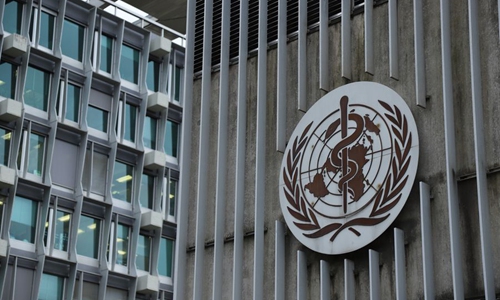WHO calls for solidarity in overcoming COVID-19 pandemic in Western Pacific
Source: Xinhua Published: 2020/10/6 23:16:51

Photo taken on Jan. 30, 2020 shows the headquarters of the World Health Organization (WHO) in Geneva, Switzerland.(Xinhua/Chen Junxia)
The World Health Organization in the Western Pacific region on Tuesday called on the 37 countries and areas in this region to join hands in fighting the COVID-19 epidemic, saying no one is "safe until every country is safe."
"It's essential to remember that we are in this together, and we can only get out of this together," Takeshi Kasai, WHO Regional Director for the Western Pacific, told the 71st session of the WHO Regional Committee for the Western Pacific.
Kasai said the coronavirus disease is the most challenging public health event the world has seen in 100 years - and it is testing not only the capacity of the health systems but also the resilience of societies and economies.
As of Oct. 5, the WHO said approximately 630,000 people in the Western Pacific region have contracted the virus, including 13,700 deaths.
Kasai lauded the "the spirit of solidarity that has characterized interactions between countries of our region over the past 9 months," adding that as long as the virus is circulating in the world, no country is safe. And there is no sign that this virus is going away quickly.
"In these difficult times, countries have come together in a spirit of cooperation and collaboration - borne out of a recognition that no country in our region is safe until every country is safe," he said.
"With that in mind, there are two important things. One: we must continue to make every effort to build and sustain the "new normal", and two: to maintain the principle of solidarity," Kasai added.
Babatunde Olowokure, Regional Emergency Director of the WHO Health Emergencies Program, said countries and areas in the region continue to be at different stages of the pandemic.
"Some Pacific Island countries and areas have seen no cases but must remain vigilant as they open borders because the virus is still circulating globally," he added.
Posted in: CROSS-BORDERS